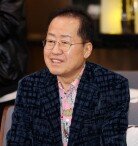[Editorial] No Revisions, No Hope
[Editorial] No Revisions, No Hope
Posted January. 12, 2010 08:37,
The streets of Yeongi County in South Chungcheong Province yesterday were filled with signs that either supported or rejected the revisions to the Sejong City project as announced by Prime Minister Chung Un-chan. One sign said, No changes to the original while another said, We will fight to the end to protect the original plan for the administrative capital. A sign showing support for the revision said, We welcome the revision, which signifies a new hope for Sejong City as well as the county.
Yesterday morning after Chungs announcement, Dong-A Ilbo reporters looked around the area nearby the site where Sejong City will be built to gauge the sentiment there. Driving from Seouls central district of Gwanghwamun to the province took three hours. The car ride itself demonstrates the inefficiency ministers and public officials will experience if they have to move back and forth between Seoul and the ministries that would have had to move to Sejong City.
The revised plan contains diverse measures to develop Sejong City as the Silicon Valley of Asia, unlike the original that wanted to relocate there nine ministries, two government departments and two agencies. The new plan includes initiatives to build a cutting-edge green industrial park with the help of major Korean conglomerates such as Samsung, Hanwha, Woongjin and Lotte; establish key infrastructure for an international science business belt; and attract leading universities such as Korea University and the Korea Advanced Institute of Science and Technology to build campuses there. The idea is to make the city the focal point for building new growth momentum. Sejong City is slated for development into a cutting-edge city of the future that enables promising industries to become growth engines such as alternative and bio energy. It will also integrate education, research, technology, business start-ups and global business. Prime Minister Chung said, The construction of Sejong City is more than just a political statement. It is a national mission of great importance. Measures should be about maximizing benefits to the nation and the people.
The European Union will open next month a conference on a 2020 strategy to make the trading bloc the worlds most competitive region over the next 10 years. The painful memory of the Lisbon Strategy lingers, as it failed miserably with the same grand goal in mind 10 years ago. To prevent a recurrence of this mistake, the European Commission has stressed green industry and technology with a focus on tertiary education under the new strategy. Given this trend, the change in plan to make Sejong City a cutting-edge center for science and education is highly desirable.
Unfortunately, opposition parties have expressed outright objection to the revision instead of seeking compromise. The chairman of the main opposition Democratic Party, Chung Sye-kyun, said, This administration conspires to incapacitate innovation and business cities beginning with the annulment of the Sejong City project. We will not tolerate such a situation. The minor conservative Liberty Forward Party said it will demand Chungs resignation, saying, The revision will go down as the worst policy failure in our history. The minor partys lawmakers even shaved their heads in protest of the revisions.
The oppositions animosity against the revision obviously has the local elections in April in mind. Many residents of other regions, however, are mostly critical of this. Many voters in South Chungcheong Province and Daejeon agree that the relocation of ministries is important, but yesterdays announcement of the revision could signify a change in sentiment in the two regions.
South Chungcheong Province responded positively to Chungs announcement, saying in a statement, The project will encourage the influx of new people and create jobs for local residents. Ultimately, it will serve as momentum for boosting the regional economy and promoting balanced regional development. A Daejeon-based professor well known for his opposition to the revisions said, I am positive over the revised plan itself, and I believe it will help regional development. The sticking point is how to build trust. A restaurant owner in Yeongi County said, When companies move to the city, it will help create jobs and boost the business of the self-employed. When I look at grassroots sentiment or hear what my customers say, their ideas are different than those of politicians.
Koreas successful history of economic development and industrialization was possible because political opposition to national initiatives was overcome. For example, opposition parties vehemently protested the setup of steelmaker POSCO in 1968 and the construction of the Gyeongbu Expressway, which marks its 40th anniversary this year. Korea last month celebrated after winning a contract to build nuclear power plants in the United Arab Emirates for 40 billion U.S. dollars, but things were different back in 1959, when Koreas GDP was just 300 U.S. dollars. When the government started its nuclear plant business, it endured heavy criticism and a political backlash. Uncertainty surrounding national initiatives of great scale had something to do with such opposition, but most of it was politically motivated. Opposition parties should not repeat past mistakes and think long and hard about the good of the nation.
Populist measures aimed at winning votes in select regions without thinking about the countrys future as a whole will ensue if opposition is based on regionalism and political motivations consider a partys interests and certain politicians in the local elections. The National Assembly has a lot to learn from the U.S. Congress, which put a healthcare bill to a vote after in-depth discussions.
In the face of objections not only from opposition parties but also within the ruling party led by lawmakers loyal to former party chief Park Geun-hye, the process of resolving disputes over Sejong City will show the maturity level of Korean society and politics. The nation is hoping that the dispute over the projects revisions will be resolved through a legitimate process and methods based on reasonable dialogue and discussion under the framework of representative democracy.




![월 800만 원 버는 80대 부부 “집값만 비싼 친구들이 부러워해요”[은퇴 레시피]](https://dimg.donga.com/c/138/175/90/1/wps/NEWS/IMAGE/2026/02/13/133363096.4.jpg)
![요즘 ‘인증샷’은 바로 여기…2030 몰리는 ‘한국의 가마쿠라’[트렌디깅]](https://dimg.donga.com/c/138/175/90/1/wps/NEWS/IMAGE/2026/02/13/133334396.3.jpg)

